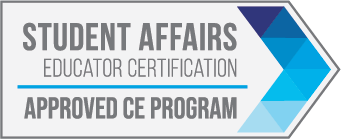
Understanding Constraints and Negotiation Strategies for Campus Recreation Programs
-
Register
- Nonmember - $60
- Member - $30
- Institutional Member - Free!
- Premier Member - Free!
Students understand that leisure time physical activity (LTPA) is important for physical wellness, mental health, and academic success, yet many students choose not to engage with campus recreation programs. Guided by empirical literature, administrators cite a lack of time or access to facilities as primary barriers to student participation. However, the leisure constraints model suggests that individual and interpersonal constraints to participation may prohibit the formation of preferences for recreational activity. This session explores the varying levels of constraints and negotiation strategies for college students based on a U.S. sample of full-time enrolled college students. Factors will be examined based on class standing, gender identity, race/ethnicity, and disability status. Program managers, marketing directors, and assessment personnel will benefit from understanding a new tool for measuring constraints and application for campus recreation programming and services.
Learning Outcomes
1. Identify one tool to measure the three dimensions of the hierarchical leisure constraints model.
2. Describe at least two ways that constraints to campus recreation participation and negotiation strategies vary among college students.
3. Articulate at least two programming and/or social marketing strategies that may increase campus recreation participation among non-user groups.
Continuing Education Credits
Participants who complete this program will be eligible for Continuing Education (CE) credits in either the Core Student Affairs Educator Certification (CSAEd™) or Certified Student Affairs Educator-Campus Recreation (CSAEd-CR™).
NIRSA has been approved by the Higher Education Consortium for Student Affairs Certification to provide CE credit for Certified Student Affairs Educators (CSAEd™). NIRSA is solely responsible for all aspects of this program.
This webinar qualifies for the amount and types of CE credit listed below:
- CE Credit value: 1
- CE Credit Type: Core, Campus Recreation Specialty
- CE Credit Domain: Assessment & Evaluation

How to get CE credits for attending this course:
- Attend the live webinar or watch the webinar recording once published to this page
- Upon completion, submit a program evaluation at this link
- Within two weeks of completing the survey, you should receive a certificate of completion via email
